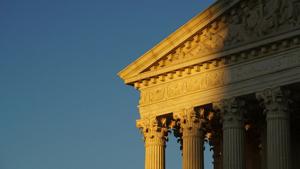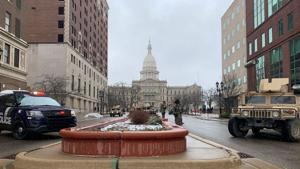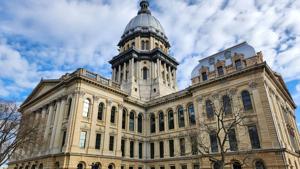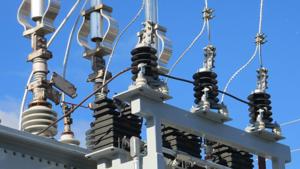Legislators criticize Illinois’ utility policies as ‘unsustainable’
(The Center Square) – Gov. J.B. Pritzker’s law banning utility shutoffs during extreme heat and cold is sparking concerns over rising electric bills across Illinois.
Signed a few years ago, the law prohibits utility companies from disconnecting residential electric and gas service when temperatures reach 90°F or above, or drop to freezing and below, aiming to protect vulnerable residents during dangerous weather.
State Rep. Brad Halbrook, R-Shelbyville, said that while the measure was well-intentioned, it may have unintended consequences.
“Somebody’s got to eat that cost,” Halbrook told The Center Square. “If utility companies aren’t turning off power to customers who don’t pay their bills, those costs show up somewhere, usually in surcharges on everyone else’s bills.”
Halbrook explained that recent utility bills include extra charges required by state laws and programs like the Low Income Home Energy Assistance Program and the Climate and Equitable Jobs Act. These added fees raise the overall cost consumers pay on their electric bills, according to Halbrook.
“The last Ameren bill I looked at had six or eight items on it that the state mandated—whether it’s a sales tax, some other kind of tax, or the LIHEAP program, or all the things required through CEJA,” said Halbrook.
Between July 1, 2023, and Sept. 30, 2024, about 333,786 households in Illinois got help through LIHEAP or the Percentage of Income Payment Plan. That’s more than the 324,336 households helped in the previous year.
A Pekin restaurant shared their electric bill on social media and is being widely shared by Illinoisans and state lawmakers.
State Rep. Bill Hauter, R-Morton, called Illinois’ energy policy “unsustainable” for small businesses and households alike
“They’re [Hacienda Cantina and Grill] just outside my district, but their post got a lot of attention. I don’t know how small businesses or people on fixed incomes are going to survive,” said Hauter. “They’ll end up running their homes hotter or colder in the winter just to cope.”
Hacienda Cantina and Grill’s electric bill shows they owe nearly $5,000 to Ameren for their July power usage.
Republicans in the Illinois General Assembly have been pushing for a special session to address rising energy costs and concerns about the state’s grid reliability. When asked whether energy companies might seek a taxpayer-funded bailout to lower rates, Hauter said it’s “a potential,” but not the solution.
“The solution is more and better sources of electricity, and the first thing that should come to mind for clean, reliable and affordable energy is nuclear power. If a climate change activist opposes nuclear power, they’re not serious about solutions, they’re virtue-signaling and seeking control through crisis,” said Hauter. “That’s why I supported the recent bipartisan bill eliminating the moratorium on small nuclear power plants.”
Gov. J.B. Pritzker recently said he supports lifting the moratorium on new nuclear power plants.
“We already got rid of it on small modular nuclear. We can do that on large nuclear. It’s going to be an important part of a transition to renewable energy everywhere,” Pritzker said.
Latest News Stories

WATCH: Businesses argue Congress holds purse strings in tariff challenge

Report: FEMA under Biden politically discriminated against Americans

Trump begins accepting $100k visa payments

Vance optimistic with Gaza peace plan; reiterates no U.S. troops to be on the ground

Poll: Majority of Americans do not support National Guard to deter crime

‘Legal minefield:’ Biometrics reforms needed to keep IL tech biz growing

Warriors Fall to Olney 28-27 in Heartbreaking Battle for Little Illini Title

As military branches celebrate 250 years, Democrats vote against paying them

Chicago transit violent crime at 7 year high, funding concerns persist

WATCH: National Guard case before SCOTUS; Trump insists China soybean deal coming

Illinois quick hits: Harvey furloughs some employees; lead poisoning prevention continues

Illinois quick hits: Filings made to SCOTUS in National Guard case; Chicago sued DHS














